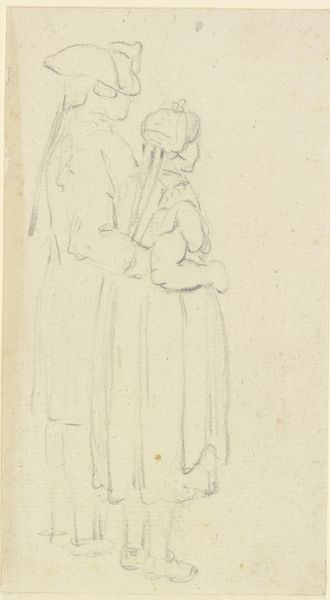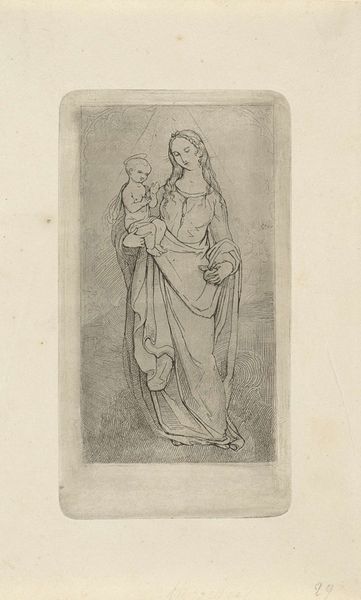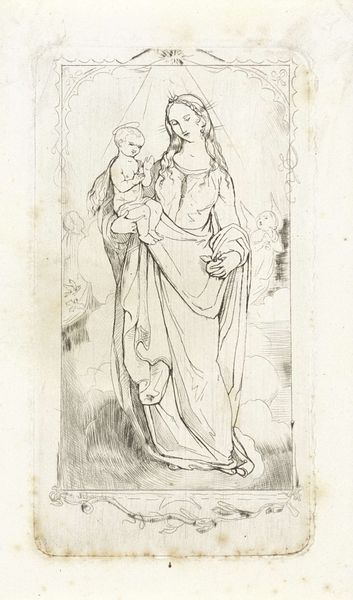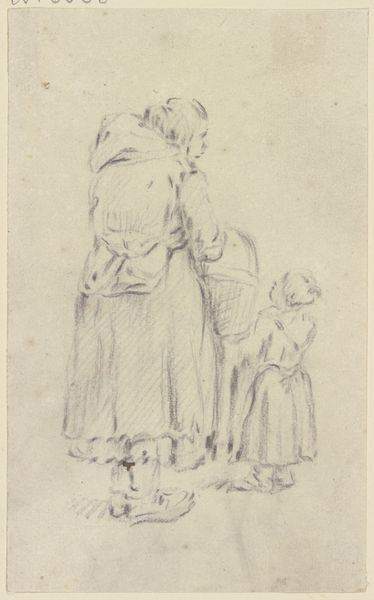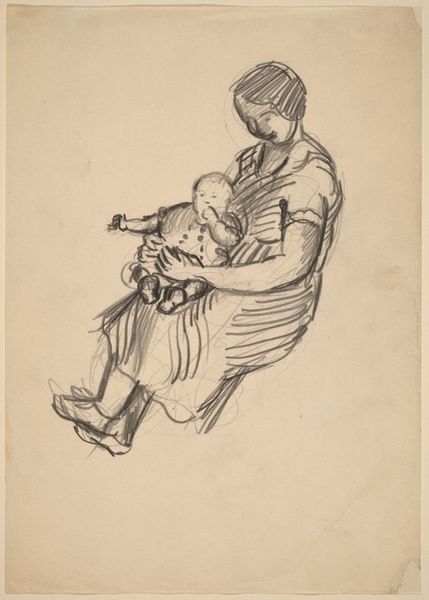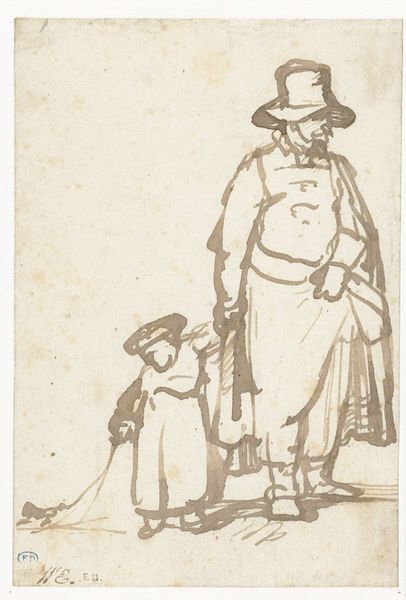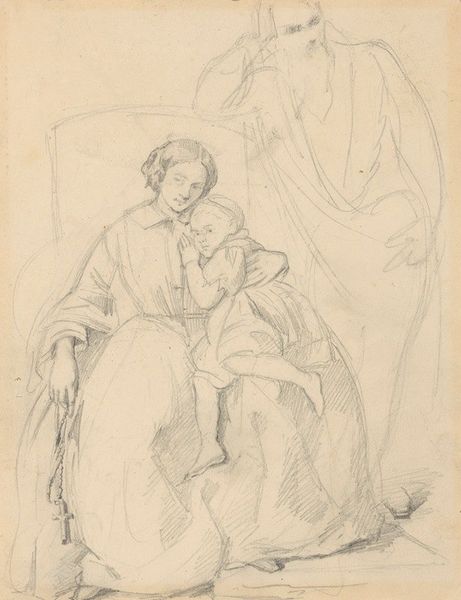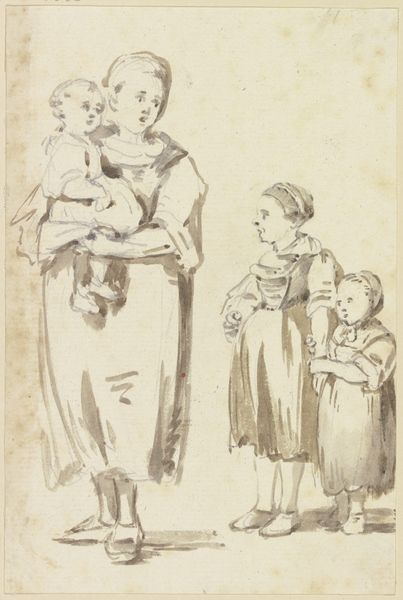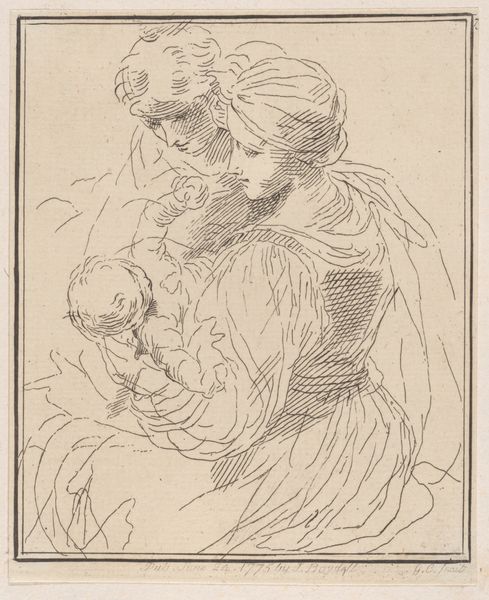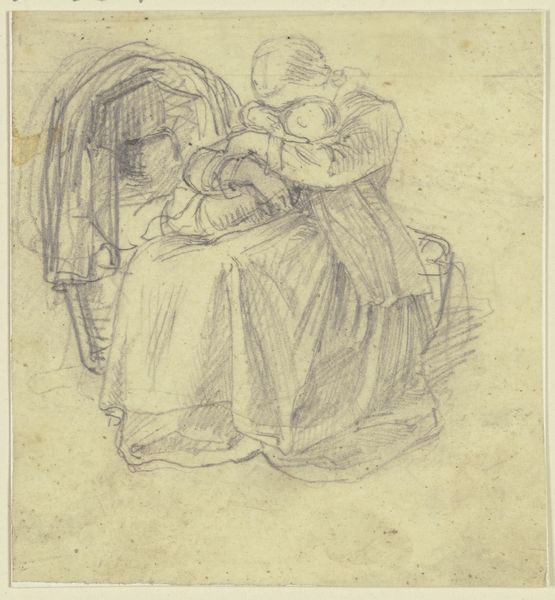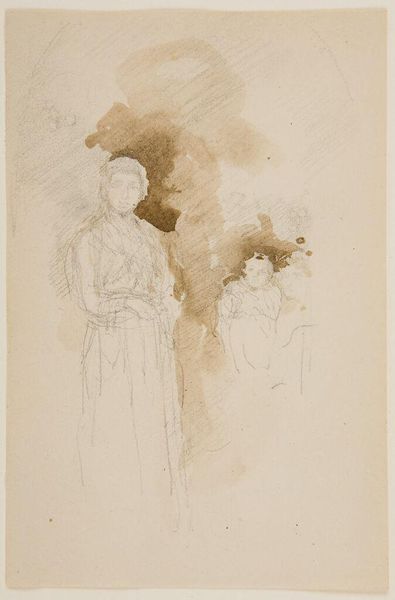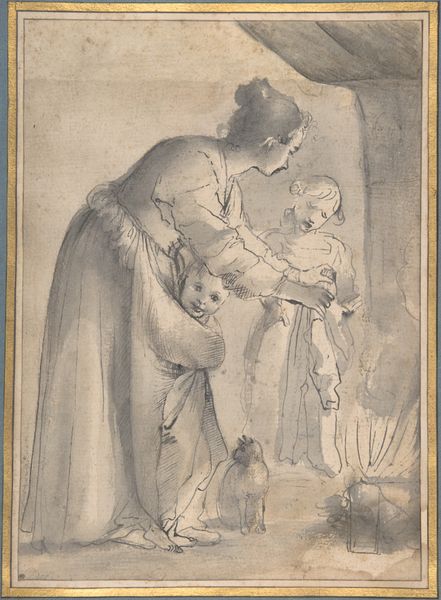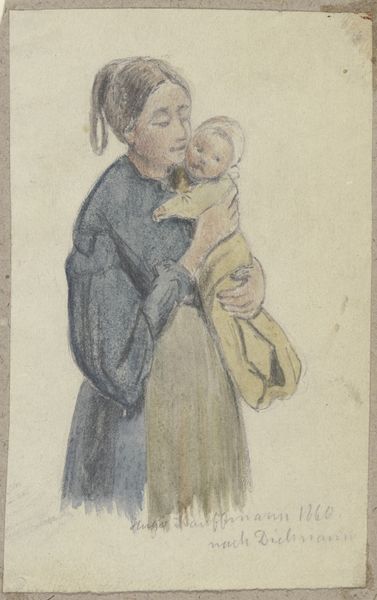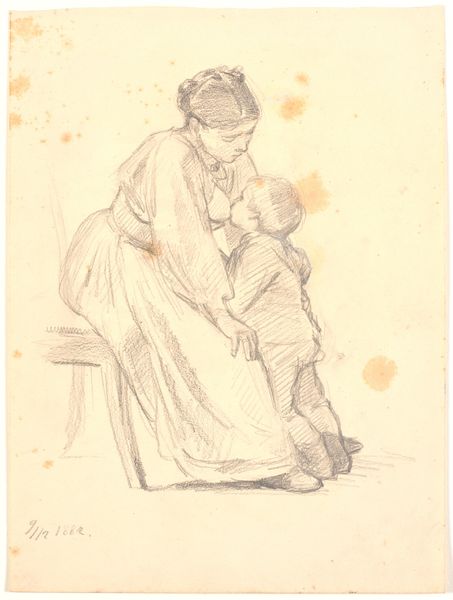
Dimensions: support: 521 x 368 mm
Copyright: CC-BY-NC-ND 4.0 DEED, Photo: Tate
Curator: Sir David Wilkie, who lived from 1785 to 1841, created this work, titled "Study for 'The First Ear-Ring'," held in the Tate Collections. Editor: The sketch gives an impression of tenderness—the flowing lines, the subdued palette—it feels very intimate, as if capturing a private moment. Curator: Indeed. Note how the artist used a combination of pencil and watercolor to render the figures. The textures created, particularly in the fabrics, offer a certain depth, even in this preliminary state. Editor: I'm drawn to the almost ritualistic quality of the scene, the passing down of adornment. The earring itself isn't visible, yet it symbolizes a transition, a shift in identity for the young girl. Curator: I agree the absence is central; however, the composition, notably the vertical orientation and placement of figures, dictates the viewer's gaze, emphasizing spatial relationships. It creates a visual hierarchy. Editor: Perhaps that hierarchy underscores the cultural expectations being placed upon the young girl, her entry into the world of women marked by ornamentation. Curator: Ultimately, this study reveals Wilkie’s careful attention to form and composition, offering a glimpse into his artistic process. Editor: It prompts a reflection on the meanings we ascribe to adornment and the passages of life they signify.
Comments
tate 9 months ago
⋮
http://www.tate.org.uk/art/artworks/wilkie-study-for-the-first-ear-ring-n04830
Join the conversation
Join millions of artists and users on Artera today and experience the ultimate creative platform.
tate 9 months ago
⋮
This study is one of several made between 1832 and 1834, which served as the basis for an oil painting exhibited by Wilkie at the Royal Academy in 1835. That picture, which can be seen in the adjacent gallery, was exhibited with the quotation 'Il faut souffrir pour être belle' ('It is necessary to suffer to be beautiful'). Gallery label, August 2004
